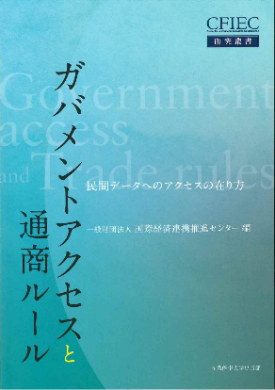-
Articles
The Future “T-Shaped” Lawyer : Emotional Intelligence, Artificial Intelligence Or Both
In modern times, the ‘T-shaped’ worker is becoming more and more important. The vertical bar on the letter T represents the depth of related skills and expertise in a single field, whereas the horizontal bar is the ability to collaborate across disciplines with experts in other areas and to apply knowledge in areas of expertise other than one’s own.
Over the past few years, there have been a lot of talks about Artificial Intelligence (AI) invading the legal industry. It has been speculated that AI will eventually take over and replace tasks that are commonly performed by humans. There is a fear that machines will take over the legal profession.
Is this really possible? Perhaps technology is sophisticated enough to design algorithms that would make machines understand human emotions. Will it take over the work performed by lawyers and would lawyers no longer be an integral part of the legal profession?
Emotional intelligence (EI) involves our capacity to express our emotions on various matters, not just what the facts are and not just based on rules or regulations; rather, on how we ‘feel’ about that particular situation, which is an emotion unique to human beings. However, machines have come a long way since their creation several decades ago. Can machines be programmed to think like humans? Do we want them to think like humans?
In the legal industry, there have been significant developments in the use of machines for routine tasks in the work place. AI machines are being used to scrutinise complex documents for example, which lessens a lawyer’s workload substantially. AI is being used to scan thought documents to save time potentially used by a person to read through and make necessary changes. However, can we leave AI to handle matters that involve human emotions?
In a major M&A transaction, perhaps AI can handle most matters because certain things can be programmed into a machine, e.g. the whole actions relating to M&A governance. However, would this be the same for a family law case, involving a minor, on an issue relating to whom the child would like to reside with? Often, this is just not a consideration of what the law states but also an evaluation of what is in the child’s best interests. Can we trust a machine to make a ‘humanised’ decision on this? There are many doubts as to whether or not there will ever be a time when AI can be used in such a situation as there would be too much EI, involving discretion, required to be performed.
In this day and age, where surrogacy and embryonic technology is being used, there is a lot of human emotion needed to make decisions that would be fair and just on the parties; particularly issues dealing with human emotions. This is very different from matters involving a purchase of a property, the setting up of an off-shore corporation or the acquisition of a multi-billion dollar company. Such would also be the case in criminal cases, where judgement is often not just based on the criminal procedures and status but also on a degree of human understanding of the subject matter. Human emotions do not come with a set formula; hence, they are not something that can be programmed into a machine.
For example, employment law, which relates to dismissals or terminations, often does not just involve the mere wording of the law. Emotions are a big aspect; perhaps the law says it is a wrongful termination and a reinstatement is requested but the fact that there are so many ‘emotions’ involved in the work place for the parties makes a reinstatement not the best solution for the matter. In such regard, can AI detect such emotions?
Furthermore, in the current era, there are more and more cases of sexual harassment, bullying and discrimination. These cases are all charged up with emotions. Can AI render a better judgement compared to humans in such cases where emotions play such a big part? Lawyers not only read the law and interpret it to best suit the client but also have a great degree of emotional understanding of what is best suited and is in the best interests of the client.
The complexity of human emotions may not be something that can be coded into a machine very easily and perhaps should not be attempted. As a client, would the outcome/decision deriving from AI be something that can be taken without question?
Moreover, there is the issue of trust. Lawyers spend a lot of time and effort working with clients; building up rapport and reputation, understanding of their needs and establishing trust and respect. How can this be programmed into a machine?
There is no question that, over time, AI is going to play a bigger role in the legal industry. However, I believe a human touch is still very much needed in many areas of the law, where human emotions still have an influence in the decisions that are taken; be it a judgement or directive issued by an authority.
Clients come to us for our professional opinions and we deliver these opinions substantially based on legal status and guidelines, but often offer some important and insightful thoughts outside the realms of legal materials available; based on experience and emotional intelligence. Would clients receive this from AI?
There has been significant development in the technology of machines recently with some AI machines programmed to understand human emotions. Could they catch up with our EI and, if so, would there be any difference between humans and machines.
At the present time, AI is very useful to lawyers. We continue to be more dependent on machines. However, the extent of our dependence only goes as far to assist us in our heavy workloads. In the end, the final draft of an opinion is still done by humans, as there will usually be some emotions attached to it.
In summary – AI or EI ? AI is used to assist our work and we sprinkle in some EI. It has to be a balanced combination.





